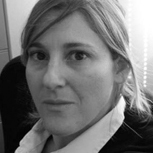“While in typical North Atlantic fisheries, the head, gut and bones of every cod are discarded, in Icelandic fisheries we have become used to making money out of many of these by-products,” says Dr. Thor Sigfusson, CEO of the Iceland Ocean Cluster. Their analyses indicate that Icelanders are able to utilise over 80% of each cod, while many neighbouring countries, such as Norway and Canada, still throw half of the fish away. The study indicates over 500 thousand tonnes of cod are discarded, at sea, or as waste, in the Barents Sea region, and across the North Atlantic, from Newfoundland to Norway. “Cod Day is held both to celebrate the success of tech companies which have found ways to utilise more from each fish; and to remind us all in the North Atlantic about the potential value in utilising more of this fantastic natural resource.”
Cod historically fuels one of the main industrial sectors of Iceland. Not only the country has threatened wars on neighbouring countries fishing in their waters; the Icelandics have self-imposed very restrictive measures to cod exploitation when the population of Gadus morhua started to decline globally. Today, global data offer no consolation to the damage inflicted by overfishing this incredible resource, also named “the beef of the sea,” for its ability to feed and sustain the human population in the North Atlantic: the decline continues. However, a closer look shows that the waters in the Eastern regions of the basin, such as around Iceland and Norway, are still very productive; and those countries are enjoying a healthy fishery. Scientific data of 2013 show spawning cod at their highest levels in almost 50 years. The Icelandic self-imposed practice of reducing fish quota in years of low population has allowed their cod population to recover and restore Iceland’s fisheries to pre-crisis value.
It is understandable, then, and even desirable, that Icelanders protect their cod stock through sound management practices, of which they are proud representatives; and, that this incredible resource even plays a political role. In facts, Iceland started considering EU membership, in 2009, when the country, badly shaken by an economic crisis which decapitated three of its banking institutions and halved the value of the Icelandic krona, became the first (albeit not the last) western country to appeal to the International Monetary Fund for economic support, since the times of World War II. In those difficult years, the eurozone and EU membership appeared as an attractive prospect. The Country, however, dropped its bid to join the EU in the spring of 2015. Although never openly discussed, a debate over the national trade offs in respect to fishing quotas may have been an unsolvable obstacle to negotiations.
On Cod Day, the Icelandic companies take the stage to show how their efforts, imagination and fish stock management practices allows cod to still make history and remain a fundamental ingredient in Icelandic economy, supporting skin care, nutritional supplements, pharmaceutical, processing technology and even fashion industry, as well as the traditional food sector.
Iceland Ocean Cluster, www.sjavarklasinn.is/en/.


